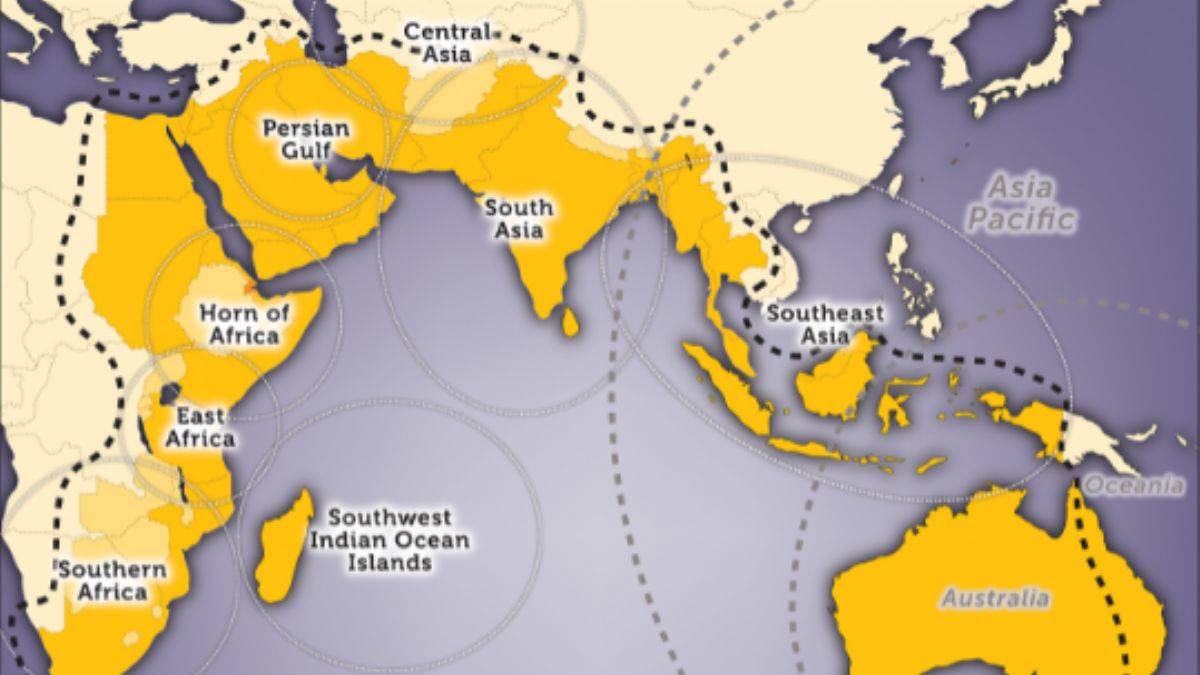November 11, 2024
Abdullah Miroğlu
The stage is being set in the Pacific!
According to American historians, ” the Peloponnesian Wars” that occurred between 431-404 BCE explain the “great power competition” between the United States and China. Americans see these wars through the eyes of Athenian General Thucydides. According to Thucydides, it was the fear that rising Athens inspired in “Sparta” that led to the war. Thucydides’ conclusion is often summarized in the maxim, “Rising powers and established powers will inevitably clash.” Today, “Thucydides’ ghost” is looming over the established hegemon, the United States, and the rising China.
The stage of the Peloponnesian Wars was the geography of ancient Greece. Sparta was known as a “land power” and Athens as a “naval power.” Sparta led the “Peloponnesian League,” while Athens led the “Delian League.” City-states scattered across hundreds of islands were allied with one of the two leagues. Sparta and Athens represented different systems under ancient conditions, respectively “oligarchy” and “democracy.”
In addition to states allied with Sparta and Athens, there were city-states of “secondary allegiance.” A conflict between two of these vassals sparked the Peloponnesian Wars. The island of Melos, which attempted to remain “neutral,” was destroyed by Athens. Athens gave Melos an ultimatum: “Join us, or you will have to endure destruction from our side. The strong subjugate the weak. “You are either with us or against us.” Athens’ control over its allies through “power” or “intimidation” created significant anxiety in the opposing coalition. Athens had subjected its allies to tribute. Using these tributes, supposedly collected due to “fear of enemies,” for its own benefit. For this reason, American generals often compare NATO to the “Delian League.”
The growing arrogance of Athenian imperialism ultimately led to its downfall. Athens had been defeated by Sparta, and the Delian League was disbanded. The Peloponnesian Wars, described as a “miniature world war,” also marked the end of ancient Greek civilization. For 2,200 years, the Greeks lived under the rule of others.
Developments in the “Asia-Pacific,” which the United States calls the “Indo-Pacific,” bear resemblance to those before the Peloponnesian Wars in ancient Greece. Through initiatives such as “AUKUS” and the “Quad Dialogue,” the United States seeks to expand its alliances in the region. The largest American forces abroad are part of the “Indo-Pacific Command.” Taiwan appears to be a potential flashpoint in the U.S.-China strategic rivalry.
China has disputes over islands, islets, and reefs with several countries, including Japan, Vietnam, and the Philippines, in the East and South China Seas. The United States, in turn, seeks to limit China’s military reach as much as possible in the Pacific waters. Island nations in the South Pacific are also within the sphere of influence of these two superpowers. China engages in diplomatic initiatives to conclude bilateral or multilateral agreements with these island nations, while the U.S. and its allies attempt to thwart these efforts.
China’s security agreement with the Solomon Islands’ government in April disturbed the United States, Japan, Australia, and New Zealand too much. These countries believe China aims to establish military bases on the islands. The U.S. is also working to form a global coalition against China. The Biden Administration labels this coalition as one of “techno-democracies” against “techno-autocracies.”
As the world economy shifts from Europe and the United States towards Asia, it is evident that the great power competition of the 21st century will intensify in this region. The Asia-Pacific geopolitics extend to the Indian Ocean. In this context, the coastal nations of East Africa also fall within the scope of geo-strategic competition. Approximately three-quarters of the world’s oil is transported via the Indian Ocean. China’s only overseas military base has been constructed in Djibouti, on the East African coast.
The toxic mix of history, politics, pride, fear, interests, and imperialist ambitions is setting the scene for potential war in the Asia-Pacific. Considering the history of great power conflicts, a war that might involve the United States, China, and other actors in the future appears possible. According to strategists, the Pacific war would take the form of “sea-air battles.”
Depending on how we interpret it, “History” is a good teacher, showing us what happened and how it turned out. Powers that are not good students of history make wars inevitable.






